About Us
Adelaide Contemporary Experimental (ACE) is South Australia’s leading independent contemporary visual arts organisation.
Located in Adelaide’s iconic Lion Arts Centre precinct, Adelaide Contemporary Experimental (ACE) is South Australia’s leading independent contemporary arts organisation, proudly supporting artists to imagine, develop and showcase art on Kaurna Yarta (Kaurna Country).
Established through the merger of the Contemporary Art Centre of South Australia (CACSA) and the Australian Experimental Art Foundation (AEAF) in 2017, ACE builds upon the legacy of over 100 years of leading experimental arts activity in South Australia.
Through exhibitions, studios, live programs, education and professional development opportunities, ACE is a space for artists and audiences to explore, reflect on and connect with contemporary and experimental art.
Our Approach To Programming
Since its inception, ACE’s program has explored many timely issues, driven by the question: what is urgent to discuss today and who should be telling these stories? We recognise that contemporary art takes many forms, and have built a reputation for presenting new and important processes and methodologies for artistic practice.

Exhibition program
ACE presents a yearly program of free exhibitions, with focus on commissioning and curating new work from local, national and international artists across all stages of their careers. We regularly work with external curators, collaborators and partners to expand the diversity of voices and perspectives in our program. Our exhibitions are complex, contemplative and ever-changing.
Public programs
ACE presents an annual program of talks, performances, film screenings, accessibility tours and other events that accompany and contextualise our exhibitions. We also invest in stand-alone activities, such as public discussions and workshops, to connect our audiences with contemporary art practice and ideas. Our public programs are expansive, stimulating and open to all.
Studio Program
ACE is home to fully-supported, rent-free CBD-based studios for South Australian artists.
The ACE Annual Studio Program provides year-long professional development opportunities, including 24/7 access to studios above the ACE gallery, studio visits with Australian and international curators, participation in live programs, curatorial mentorship from ACE, and prominent profiling and promotional opportunities.
It is the only program of its kind in the state, available exclusively to South Australia artists, and serves as an invaluable pathway for artists to gain national recognition. Working as part of a cohort of fellow artists, the Annual Studio Program gives residents the space and support to experiment, expand their practice and grow their professional careers.
There are three studio spaces available via this open call out.
Education programs
ACE engages secondary and tertiary students and educators in dialogue with contemporary art and artists, providing access to minority perspectives, powerful models for creative and critical thinking, and viable career pathways. The program caters to secondary and tertiary education, extending to professional learning for recent graduates and art educators.
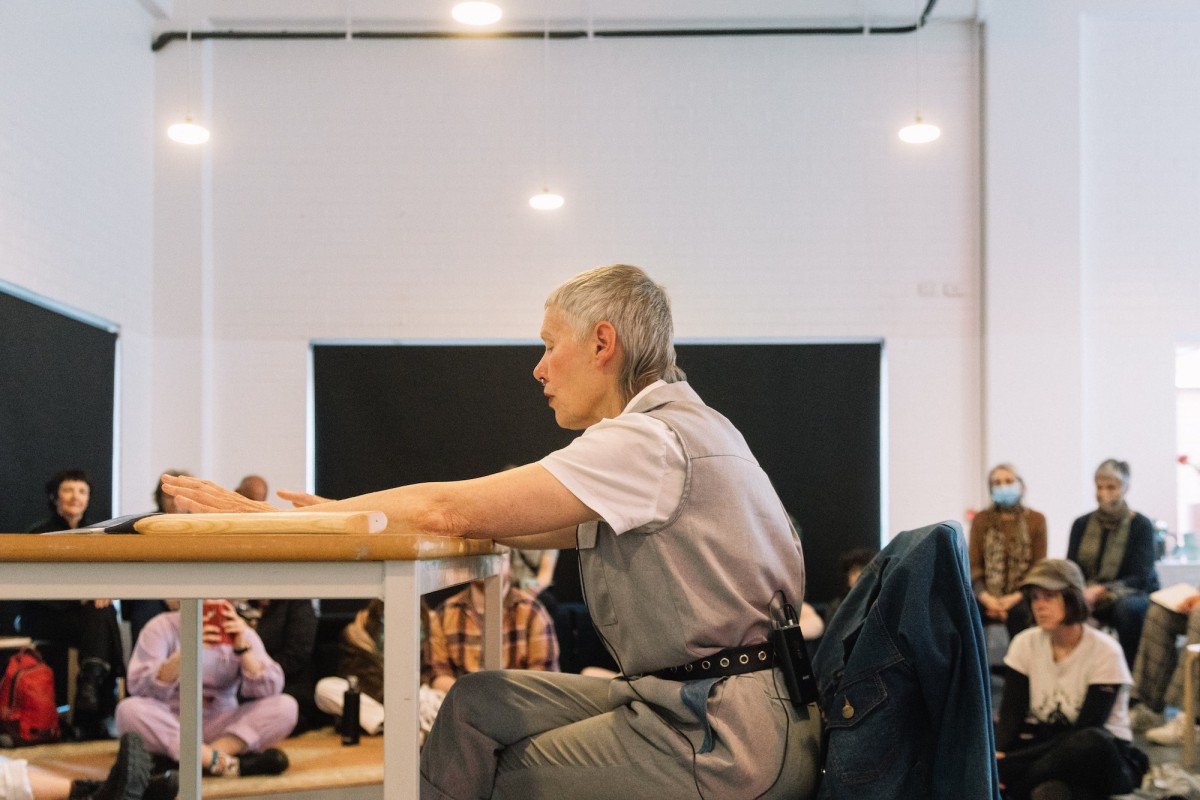
Our Audiences
ACE believes everyone has a right to access artistic expression and take part in South Australia’s cultural life. We invite audiences to experience contemporary art in an environment that is simultaneously engaging, challenging and welcoming. ACE is committed to ensuring our programs and activities are as accessible as possible, for as many people as possible.
Our Role In The Sector
ACE plays a vital role within the South Australian arts sector and cultural ecology, championing best practice in a wide range of arts activities. We serve as a scaffold for building local artists’ careers and are quickly growing a legacy of new work commissions which continue to circulate in galleries and collections across Australia. We believe that, by strongly supporting local artists and communities, and connecting them to our national and international peers, we can create greater opportunities and more expansive contexts for a diversity of art practitioners in South Australia.
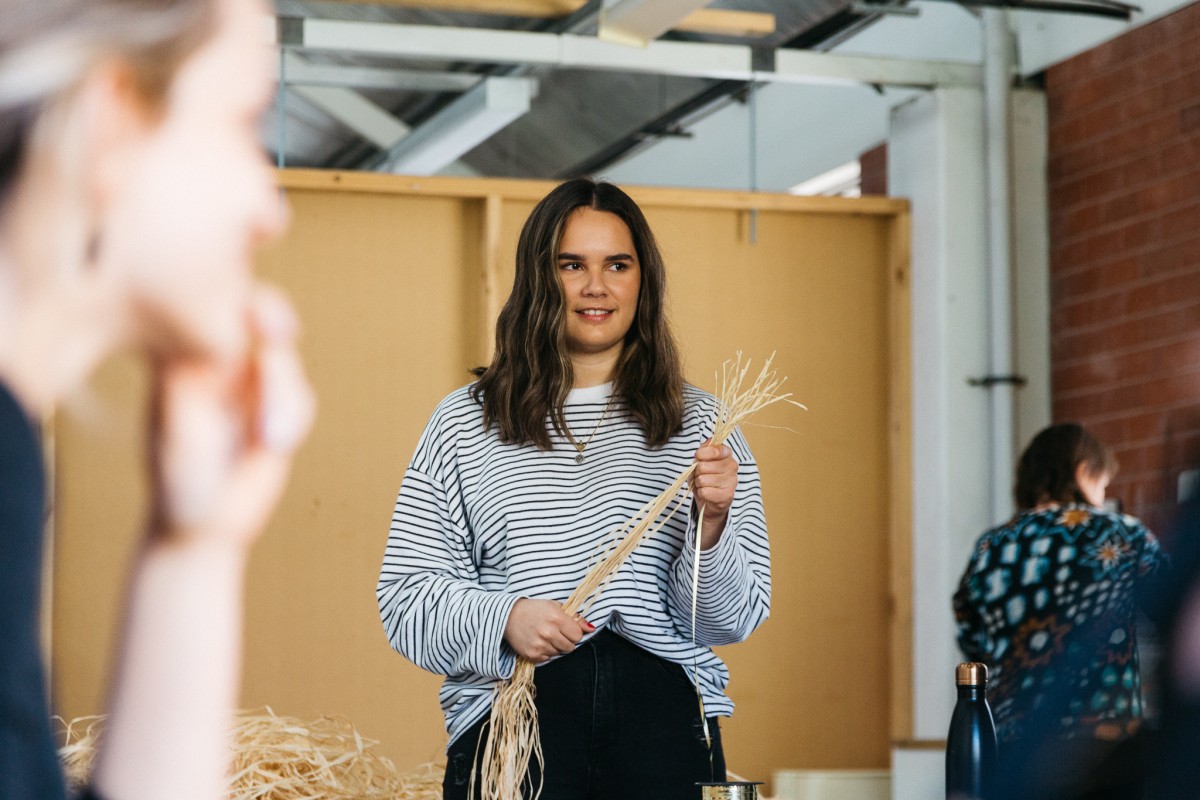
Vision
To understand, expand and transform our world through contemporary art.
Mission
To be South Australia’s leading contemporary art space, nationally renowned for supporting artists, promoting artistic excellence and enriching audience experience.
ACE Freedom of Speech Statement
To expand, enrich and transform through contemporary and experimental art - Adelaide Contemporary Experimental (ACE) enables artists practice by fostering experimentation, respecting difference, and nurturing opportunities; as well as supporting audiences and communities to develop understanding, to engage, to respond and to connect with artists and each other in the space of experimental art.
ACE is committed to contemporary experimentation and understands that research and risk-taking are essential to forging new artistic methods and practices.
ACE acknowledges the right of our artists to exercise autonomy and Freedom of Speech. Views held by our artists are not necessarily the views of the organisation, however we stand by our artistic right to hold and express diverse views.
ACE does not tolerate any behaviour that is insulting, against the law, or discriminatory in any form. We have zero tolerance regarding discrimination, abuse, or hate speech towards our staff, artists, audiences, and the communities our artists represent and work with.
The Mission and Vision of ACE is guided by the ACE Board.
Annual Report
Staff
Louise Dunn
Danielle Zuvela
Harriet Culbertson
Sally Francis
Ava Viscariello
Crista Bradshaw
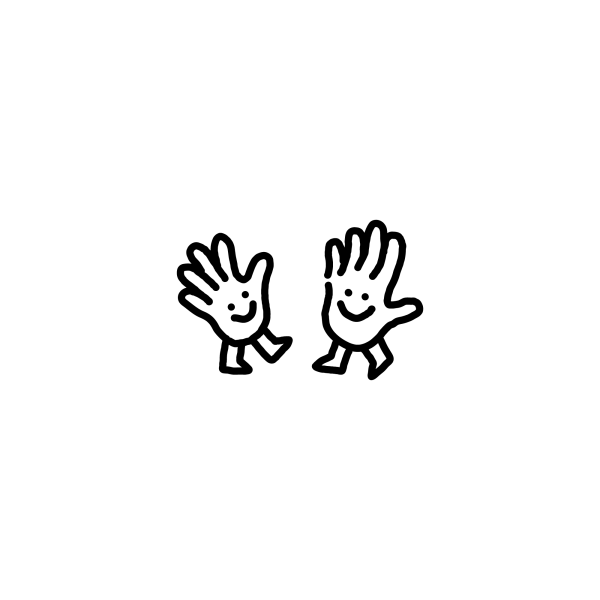
Louise Dunn is a veteran to the South Australian arts scene, most recently leading Nexus Arts as Executive Director for seven years (2012-2019), where she focused on rebuilding the organisation to become a leader in contemporary culturally diverse arts practice. At Nexus Arts, Louise devised and delivered the Ruby Award winning Barngarla: Stories of Resilience project, initiated new artist development programs benefiting over 40 South Australian artists, increased audiences and stakeholder engagement, and more than tripled funding levels. Louise has held multiple Board and committee positions in the arts sector locally and nationally, most notable as Deputy Chair (2014 -2016) and Chair (2016- 2017) at Diversity Arts Australia (formerly Kultour).
Zuvela is the co-director of Gold Coast Rainbow Communities, and co-founded Gold Coast Pride Festival in 2020. Prior to this, she was Artistic Co-Director of Liquid Architecture (2013-2019), Australia’s leading organisation for artists working with sound, and has curated hundreds of programs of experimental art, performance and music. She has worked extensively in the Australian experimental arts sector, presenting academic research, publishing art criticism and contributing expertise as a peer at Creative Australia.
Zuvela has worked on major projects for the National Gallery of Victoria, Museum of Contemporary Art, Sydney Opera House, Institute of Modern Art, North Norwegian Art Centre and the Tate Britain. Through research, critical writing, residencies, exhibitions, discursive public programs and publications, Zuvela engages with artists and non-artists in the production of relationships and the exchange of knowledge. With a background in experimental music and performance, her practice uses research and ideas to fuel experiences and encounters where the natural world is often a protagonist.
Following on from the research project WHY LISTEN TO ANIMALS, co-curated with Joel Stern for Liquid Architecture, in the 2018 research project WHY LISTEN TO PLANTS, Zuvela curated a series of talks, walks, food, music and kayak performances in Berlin, Gold Coast, Daylesford, and exhibitions at DesignHub gallery, Melbourne, and at Nordnorsk Kunstnersenter, Svolvaer.
In 2021, Zuvela curated WATER RITES for ACE as part of the Tarnanthi Festival of Contemporary Aboriginal and Torres Strait Islander Art, exploring the subjectivity of water as a non-human actor, featuring an exhibition, screen program performances, a seaweed forage and custom ferment.
Zuvela has participated in a number of residencies in Norway, Germany and the Gold Coast. Her ongoing artist research explores conditions of the endangered Southern Swamp Orchid through collaborations with botanists, queer ecologists and orchid growers in installations and sound works.
Sally has worked in the arts for over 30 years. As Manager of the Arts in Health at FMC program at Flinders Medical Centre (SA) for 20 years, she lobbied for state-based and national support for arts and health through program delivery and policy development. Sally has a Graduate Diploma in Management (Arts) from Uni SA, and in addition to her role as Administrator with ACE, she curates a gallery space at The Joinery, which focuses on creative responses to issues of climate change and conservation.

Board
Amanda Pepe (Chair)
Gemma Harris (Treasurer)
Anton Andreacchio
Hannah Andreyev
Bridget Currie
Becci Love
Louise Rigoni
Fiona Salmon
Yhonnie Scarce
Established through the merger of Contemporary Art Centre of South Australia (CACSA) and the Australian Experimental Art Foundation (AEAF) in 2017, ACE builds upon the legacy of over 100 years of innovative experimental arts practice in South Australia.
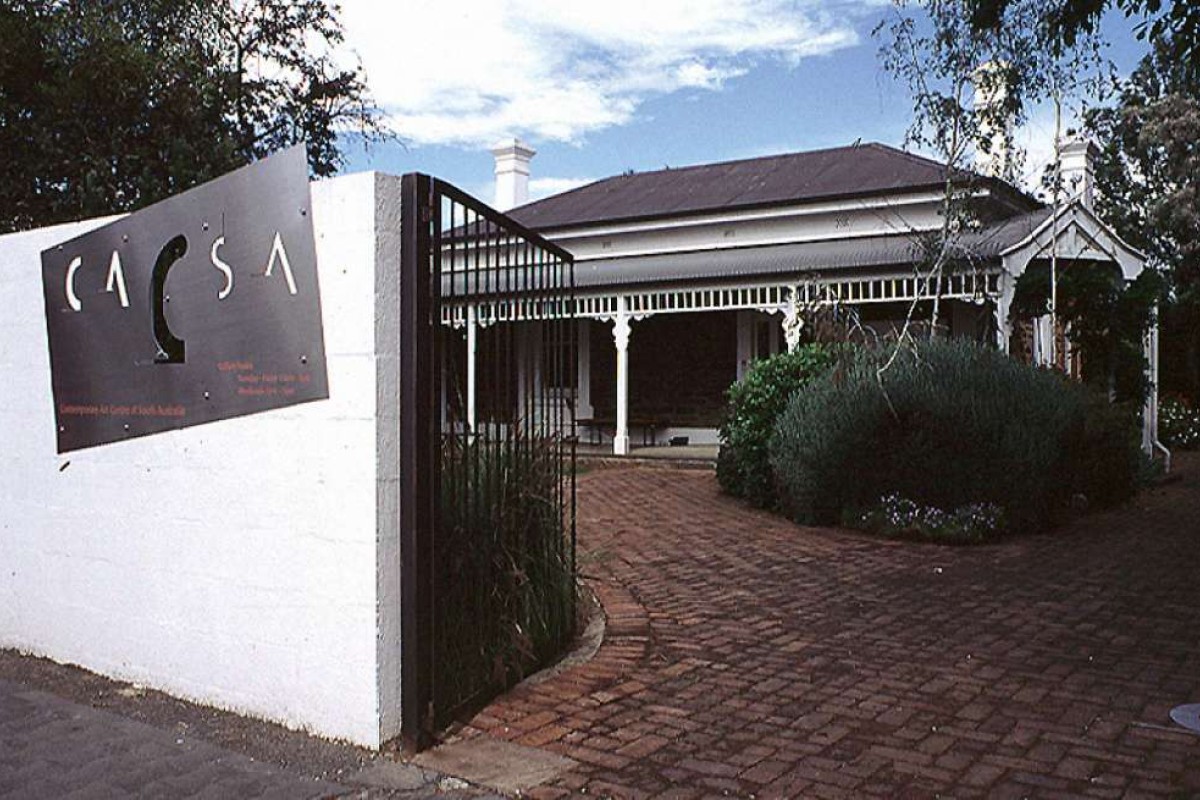
The Contemporary Art Centre of South Australia
The Contemporary Art Centre of South Australia (CACSA) was established as the Contemporary Art Society (CAS) in 1942, when a breakaway group of young artists from the Royal Society of Arts sought greater opportunities to exhibit their work. What followed was almost 75 years of pioneering activity dedicated to the promotion and exhibition of contemporary visual art.
In 1964 the CAS acquired an iconic bluestone bungalow in the leafy Adelaide suburb of Parkside in which to exhibit work. Until its closure in 2016, the Porter Street property was the longest running contemporary art space in Australia. Adventurism and risk-taking defined the CAS, with its exhibitions and programs propelling the careers of many iconic South Australian artists.
The Contemporary Art Centre of South Australia incorporated in 1986, and the organisation transformed from a volunteer-run gallery established for the exhibition of members’ work, into a publicly funded organisation with an exhibition program of national and international significance, and a revered publishing arm led by Broadsheet Journal.
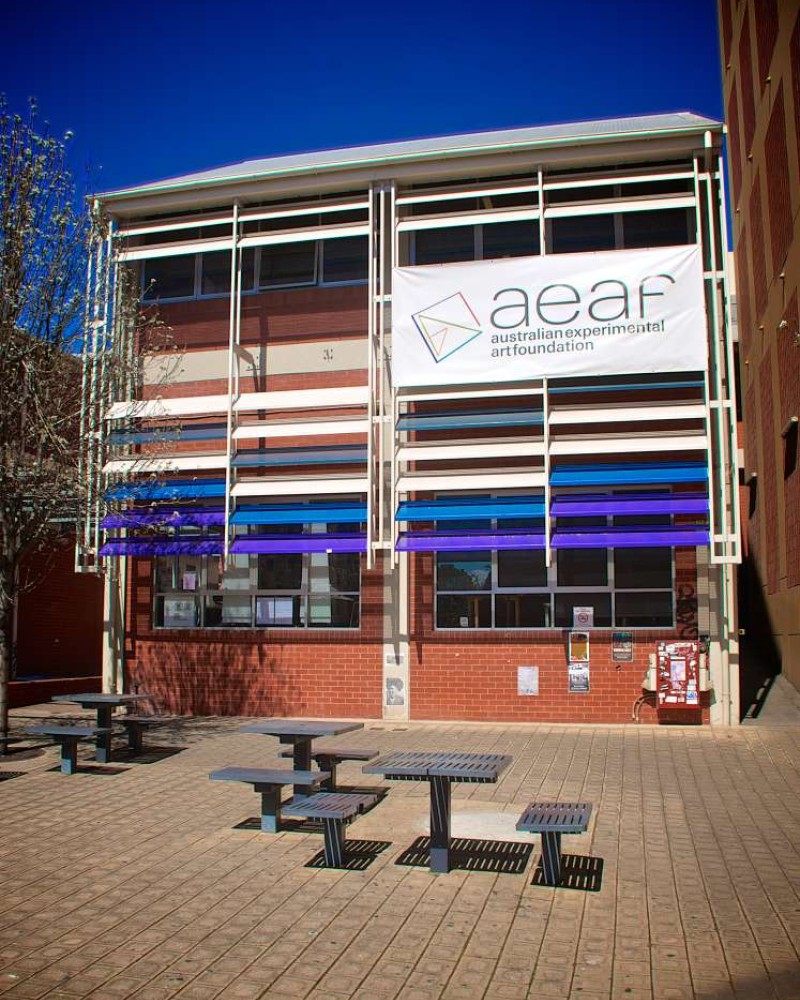
The Australian Experimental Art Foundation
The Australian Experimental Art Foundation (AEAF) was established as the Experimental Art Foundation (EAF) in 1974 by a small group of Adelaide artists and theorists, in order to both encourage new approaches to the visual arts and to promote the idea of art as ‘radical and only incidentally aesthetic’.
For more than 40 years the organisation presented exhibitions and events that continuously pushed the boundaries of art practice. Exhibitions celebrated local, national and international experimental artists, and were seminal in presenting Australian and international performance art.
In 1992 Adelaide’s Lion Arts Centre became home to the AEAF’s purpose-built gallery and facilities, including artist studios, offices and the Dark Horsey Bookshop. The AEAF supported critical dialogue through publications, artist monographs, talks and critical writing. Its artist studios and residency program supported some of South Australia’s leading artists of the 1990s-2010s.
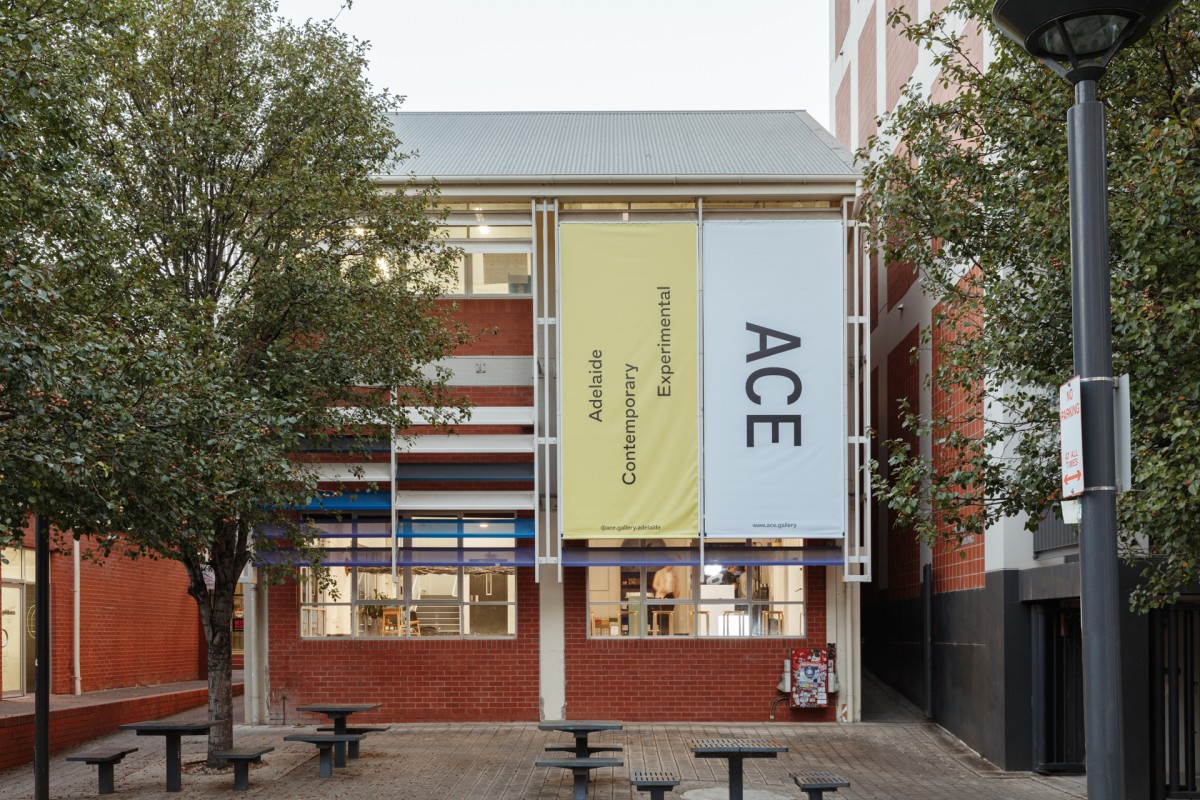
Constitution